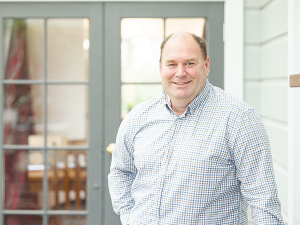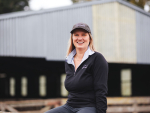Associate Agriculture Minister Andrew Hoggard says the consenting experience facing some high-country Canterbury sheep and beef farms is "bloody tragic" and vindicates the Government's move to abolish the Resource Management Act (RMA).
Hoggard says the RMA is only bringing uncertainty and turmoil to farming and he wants a commonsense approach from everyone until the new regulations kick in.
However, with the replacement legislation still in the pipeline, some regional councils are using the RMA to hold costly publicly notified hearings to issue resource consents and review consent conditions.
In this case, four farms covering two main catchments of Ashburton Lakes, are facing lengthy and costly separate hearings at the hands of Environment Canterbury (ECan).
Three of the stations claim that ECan is showing a complete disregard for the RMA reform process and want the Government to intervene.
Environment Minister Penny Simmonds confirmed receiving a letter from the stations.
"I have received the letter, and the matter is of concern to me," Simmonds told Rural News.
"Advice is being prepared for me and I am discussing the situation with ministerial colleagues."
Farmers say it appears that ECan are planning for separate hearings for each property with different timelines, despite the need for an across the catchment approach and efficiencies in cost and time management.
"There is little understanding of the financial impact or stress that this process has on farming families over an extended period of time - years in the process.
"ECan can be a leader of proposed RMA reform but instead is pushing hard to get these farms through under the current framework with a tight timeframe with no regard for the future or the impact on the families or environment involved."
The stations support a catchment-based approach to improve water quality in the lakes but point out that public notification is likely to destroy the five years of work by the Otuwharekai working group.
Hoggard says he has spoken to the farmers but admits that the Government doesn't have too many options.
"I just hope there is common sense; if these farmers were seeking these consents into a year's or two year's time, they wouldn't be facing this situation - it's bloody tragic."
Beef + Lamb NZ chair Kate Acland says the consenting experience of the four high-country sheep and beef farms shows an overhaul of the RMA is desperately needed.
"These farmers are likely facing costs and complex publicly notified consent hearings for the continuation of existing farming activities when a catchment approach is their preferred option," Acland told Rural News.
She points out that these are not land-use change or intensification consents, and the costs of public hearings are untenable.
"We and the farmers involved are acutely aware this is a very sensitive receiving environment that is special and unique. These farmers have been working collectively and in conjunction with the wider community to improve the outcomes in the catchment.
"The current processes do not appear to recognise that these are existing farming activities, nor the huge amount of work these farmers are undertaking at the catchment scale to reduce impacts and improve water quality."
In a statement to Rural News, ECan's regional leader consents delivery Henry Winchester says the reforms initiated by the current government and a new planning regime for Canterbury may ultimately have an impact on lake health, but as the environmental regulator, ECan has an obligation to work under the existing RMA framework to progress the resource consent applications and consent reviews.
Winchester says ECan must follow the statutory process outlined in the RMA.
"This requires consent applications (including consent reviews) to be publicly notified where effects of proposed activities have "more than minor" effects on the environment. Based on the current evidence available, an independent decision maker has determined that (in 2 of the 4 cases decided so far) these activities require public notification.
"This does not mean that consent cannot be granted, but it does ensure that both the farmers and concerned members of the public can provide input as to whether the activities are appropriate and what mitigation may be required to address environmental effects.
"We acknowledge the landowners for their work to date and hope to continue working with their catchment group in future. Notification decisions are independent of this work."



















